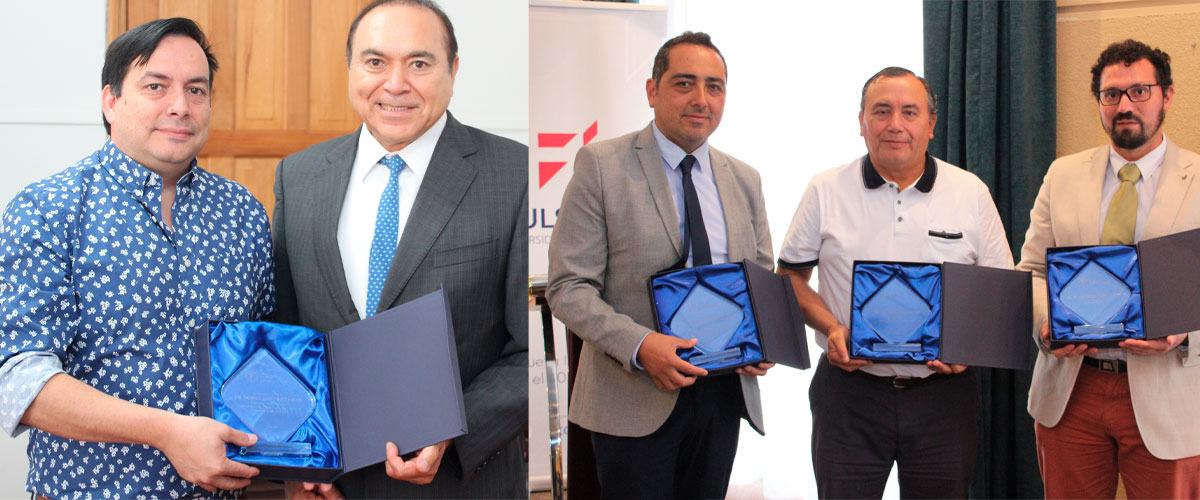- News
FIULS 2030 project recognizes the most outstanding projects of 2023 of the Faculty of Engineering

In total, there were 4 recognized projects that aim to contribute to the improvement of different areas through engineering.
In an outstanding ceremony held at the Hotel Costa Real in La Serena, academics from the Faculty of Engineering met to participate in the recognition of the most outstanding academic projects of the year 2023.
The presentation of awards was a moment of special importance for the academic community, who strove to highlight various initiatives with the aim of significantly contributing to progress in the fields of research, engineering teaching, as well as those that stood out for their positive impact. in the community and its commitment to linking with the environment.
After a review of each of the projects carried out during the last year, the commission composed of the Dean of the Faculty of Engineering, Nibaldo Avilés, the Director(s) of Research and Development; Cristián Ibáñez and the Director of the Axis of Human Capital and Management in Teaching, Waldo Valencia, decorated the academics: Ronny Martínez through the project “Satreps: Recovery of high-value bioproducts to increase the sustainability of the industry in Chile”, Alejandro Álvarez and his project “Usability of a virtual reality application in teaching electrical circuits, for preparation for industry 4.0”, Felicindo Cortés through the “FIC -R Project: Soltec Water APPS for rural water administrators”, and finally, to Leonardo Saguas through the Intikalpa ULS solar car project.
On the occasion, the Dean of the Faculty of Engineering, Dr. Nibaldo Avilés, mentioned that “it should be noted that this is an activity that recognizes the work of academics. Although not all projects were awarded, it is worth noting that there is evidence of great work. Furthermore, this projects a good signal at the university level and generates greater enthusiasm among the entire Faculty to be able to move forward.”
For his part, Alejandro Álvarez, in response to this recognition, highlighted that “these instances are fundamental since they generate elements that serve in other areas, such as links with industry and/or research. Although my project was born from an academic/teaching perspective, we are already working on two publications to send them to mainstream journals and we are working interdisciplinary with the Rey Juan Carlos University of Spain to be able to carry it out.”
Meanwhile, Felicindo Cortés was surprised by this recognition since “it is a technological innovation that is not necessarily linked to the social sphere. Although it contributes to the massive rural population, it does so from the area of management of the actors between the coordination of the municipalities and the drivers they hire for the water trucks.
While Leonardo Saguas, Technical Coordinator of Auto Solar Intikalpa, stated that “it is always good to receive recognition from the colleagues with whom one works. However, it is important to highlight and congratulate the working group in the Department of Mechanical Engineering where there are many people linked to these 10-12 years that the solar car project has lasted.”
Finally, Ronny Martínez, who was unable to participate in this meeting due to previously scheduled academic commitments, later received his award and expressed that “it is very useful as it allows people to publicize what is being done and for other academics to be aware of it.” interested in the project to be able to join the activities and also motivate them to apply for projects with international financing.”
Written by Felipe Díaz, FIULS 2030
